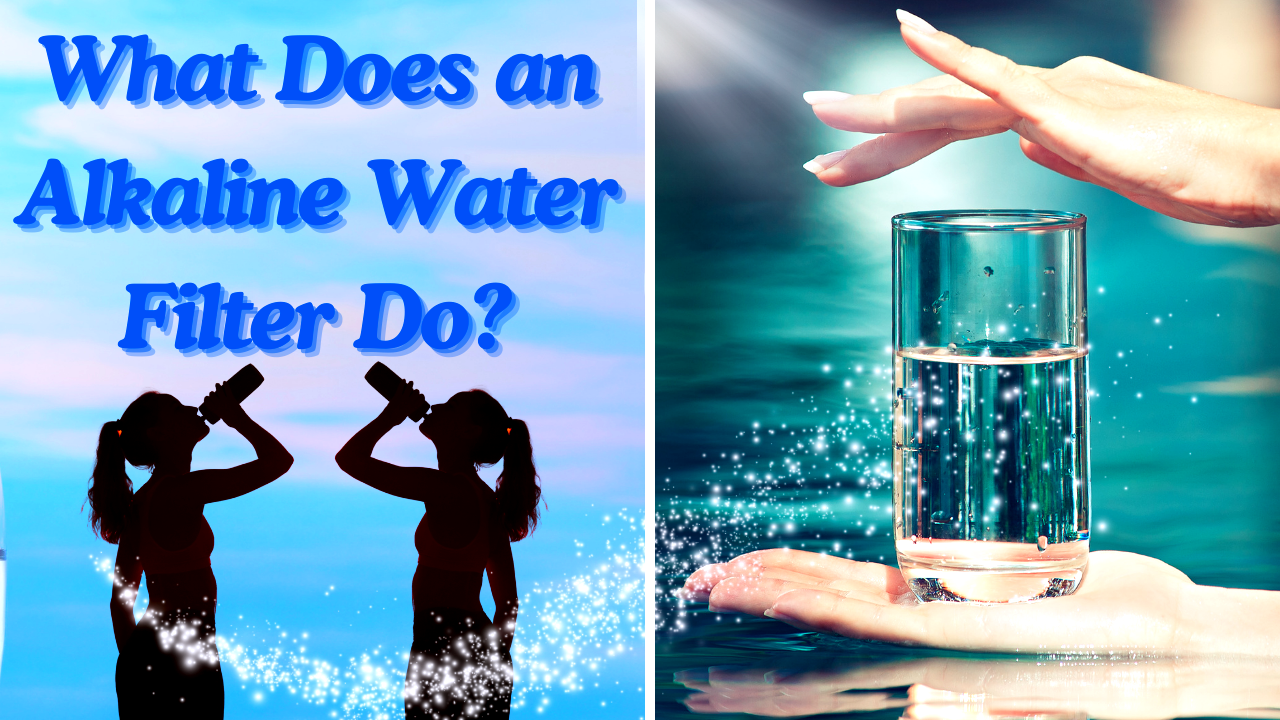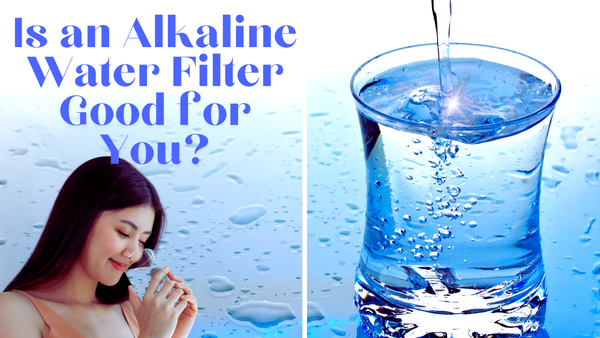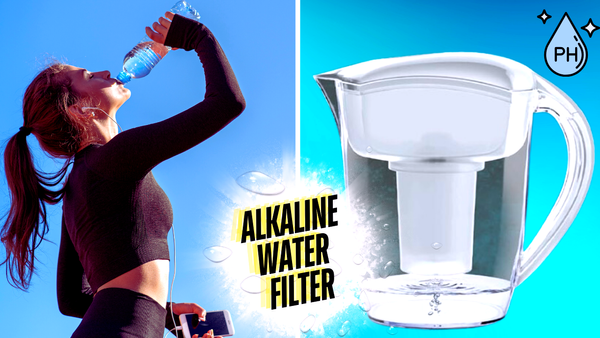Key Takeaways:
- Alkaline water filters increase the pH of water, making it less acidic and more alkaline.
- These filters can provide health benefits, including better hydration and less acid reflux.
- Alkaline water filters work through 3 stages: sediment filtration, activated carbon filtration, and ion exchange resins.
Have you ever wondered what an alkaline water filter does? You’re not alone. With all the hype around alkaline water filters, it’s time we get to the bottom of it. These filters are making a splash in the health world, with better hydration and less acid reflux. Let’s understand how they work and why you should get one for your home.
The Basics of Alkaline Water

Alkaline water is simply water with a higher pH level than regular tap water. The pH scale ranges from 0 to 14, with seven considered neutral. Alkaline water typically has a pH level between 8 and 9. This higher pH level is achieved through the addition of alkaline minerals like calcium, magnesium, and potassium.
Drinking alkaline water is believed to offer several health benefits. For instance, it can help neutralize the acid in your bloodstream, improve your metabolism, and increase your body's ability to absorb essential nutrients. While scientific evidence is still catching up, many people swear by the benefits of alkaline drinking water.
How Alkaline Water Filters Work
Alkaline water filters work through a multi-stage process to enhance the pH level of your drinking water. The first stage usually involves a sediment filter that removes large particles like sand, dirt, and rust. This is crucial for ensuring that the water is clean before it undergoes further filtration.
The next stage often includes an activated carbon filter. This filter removes chlorine, organic matter, and other contaminants that can affect the taste and odor of the water. Activated carbon is highly effective at trapping impurities, making it a staple in most water filtration systems.
The Role of Ion Exchange Resins
One of the key components in an alkaline water filter is the ion exchange resin. This material helps to increase the pH level of the water by replacing acidic ions with alkaline ions. For example, it can swap out hydrogen ions (which are acidic) for calcium or magnesium ions (which are alkaline).
Ion exchange resins are particularly effective at removing heavy metals like lead and mercury from the water. This not only makes the water safer to drink but also enhances its alkalinity. The result is water that is both cleaner and healthier for you and your family.
The Importance of pH Levels
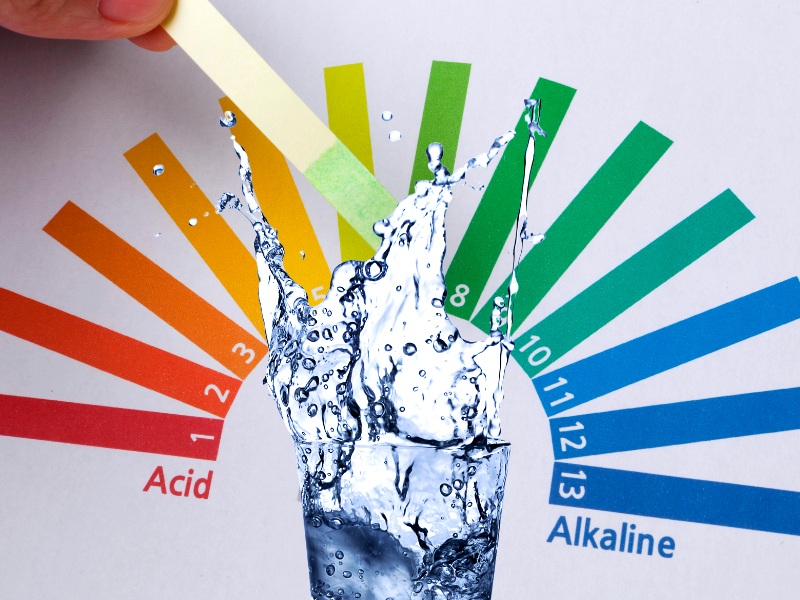
The pH level of your drinking water can have a significant impact on your overall health. Water with a low pH level is considered acidic and can contribute to various health issues, including acid reflux and high blood pressure. On the other hand, water with a higher pH level is less acidic and can help neutralize the acid in your body.
Alkaline water filters are designed to increase the pH level of your water, making it less acidic and more beneficial for your health. By drinking alkaline water, you can help maintain a balanced pH level in your body, which is crucial for overall health and well-being.
Potential Health Benefits
One of the most talked-about benefits of alkaline water is its potential to reduce acid reflux. Acid reflux occurs when stomach acid flows back into the esophagus, causing discomfort and a burning sensation. Alkaline water, with its higher pH level, can help neutralize stomach acid and provide relief from acid reflux symptoms.
Another potential benefit of alkaline water is improved hydration. The smaller water molecules in alkaline water are believed to be more easily absorbed by the body, leading to better hydration. This can be particularly beneficial for athletes and individuals who engage in regular physical activity.
Alkaline Water and Heavy Metals
Heavy metals like lead and mercury can be harmful to human health, even in small amounts. Alkaline water filters are effective at removing these contaminants from your drinking water. The ion exchange resins in these filters can trap heavy metals, ensuring that they do not end up in your glass of water.
By removing heavy metals, alkaline water filters not only make your water safer to drink but also enhance its alkalinity. This dual benefit makes them a popular choice for households looking to improve their water quality.
The Role of Activated Carbon
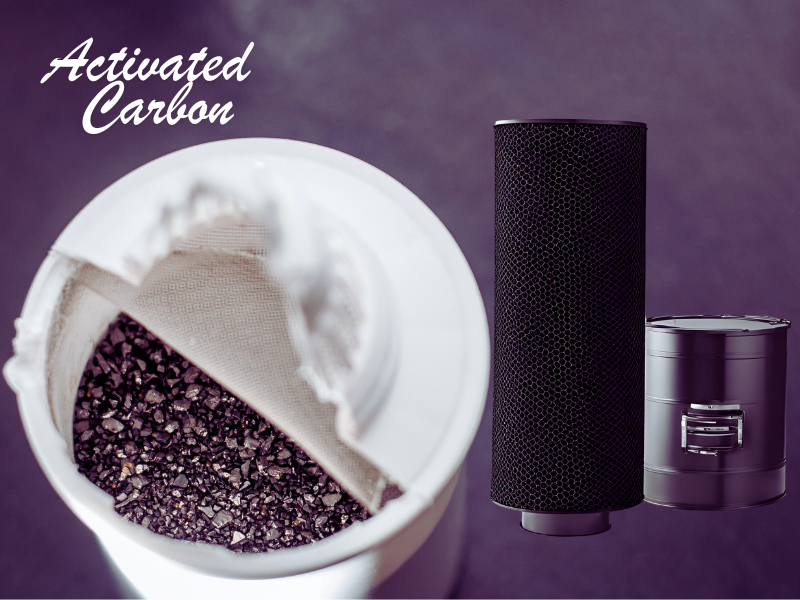
Activated carbon is a crucial component in most water filtration systems, including alkaline water filters. This material is highly effective at removing chlorine, organic matter, and other contaminants that can affect the taste and odor of your water. Activated carbon works by trapping impurities in its porous structure, ensuring that they do not pass through to the final stage of filtration.
In addition to improving the taste and odor of your water, activated carbon also helps to enhance its alkalinity. Removing acidic contaminants, allows the ion exchange resins to work more effectively, resulting in water with a higher pH level.
Reverse Osmosis and Alkaline Water
Reverse osmosis (RO) is another popular method for filtering water. This process involves forcing water through a semipermeable membrane to remove contaminants. While RO is highly effective at removing impurities, it can also strip the water of essential minerals.
To counteract this, many alkaline water filtration systems include a remineralization phase. This stage adds back essential minerals like calcium and magnesium, which not only improve the taste of the water but also enhance its alkalinity. The result is water that is both clean and rich in beneficial minerals.
The Benefits of Alkaline Minerals
Alkaline minerals like calcium, magnesium, and potassium are essential for human health. These minerals play a crucial role in various bodily functions, including bone health, muscle function, and nerve transmission. By drinking alkaline water, you can help ensure that your body gets an adequate supply of these essential minerals.
In addition to their health benefits, alkaline minerals also help to increase the pH level of your water. This makes the water less acidic and more beneficial for your overall health. Whether you're drinking bottled alkaline water or using an alkaline water filter, these minerals can make a significant difference.
Alkaline Water and Human Health

The benefits of alkaline water go beyond hydration and acid reflux relief. Some studies suggest that alkaline water can improve bone health, lower high blood pressure, and even boost the immune system. More research is needed to confirm these benefits, but the initial results are promising. Drinking alkaline water can support your body’s natural functions and overall health. Whether you have specific health issues or want to feel better, alkaline water can be a good addition to your daily routine.
Alkaline Water vs. Bottled Water
When choosing between alkaline water and bottled water there are several factors to consider. Bottled water is convenient and widely available but it’s also expensive and bad for the environment. Alkaline water filters are a more sustainable and cost-effective solution. By investing in an alkaline water filtration system, you can benefit from alkaline water without the environmental impact of bottled water. Plus, you’ll have the peace of mind of knowing your water is contaminant-free and mineral-rich.
How to Choose an Alkaline Water Filter
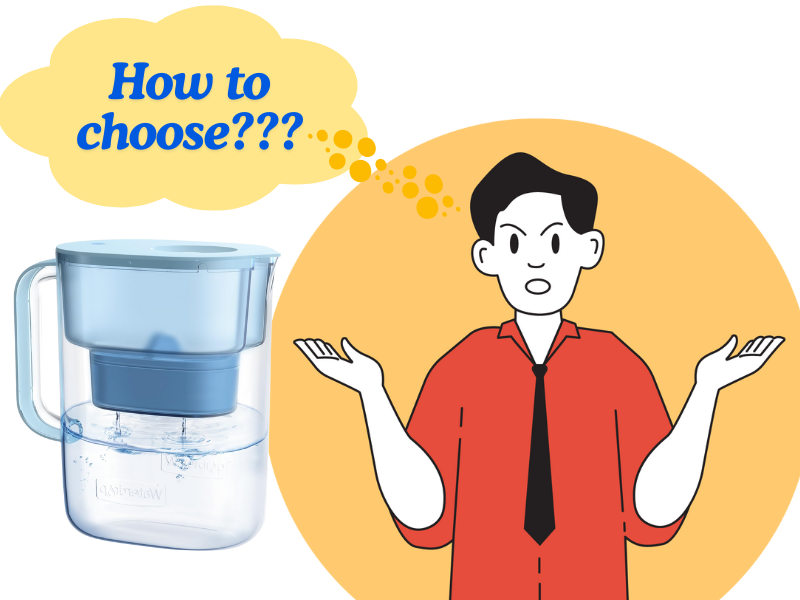
Choosing the right alkaline water filter can be overwhelming, with so many options. When choosing a filter, consider the type of filtration system, the quality of the materials used, and the maintenance. Look for filters with multiple stages of filtration, including sediment filters, activated carbon filters, and ion exchange resins. Also, the pH of the water produced by the filter should be considered. Look for a filter that can produce water with pH 8-9, as this is the optimal pH for drinking. Finally, read reviews and do your research to ensure you’re getting a good product.
The Cost of Alkaline Water Filters
The cost of alkaline water filters can range from $50 to $500 depending on the type and quality of the system. While the initial investment may be more than buying bottled water the long-term savings can be substantial. In addition to the cost of the filter itself, consider the cost of replacement filters and maintenance. Most filters need to be replaced every 6-12 months, depending on usage. Make sure to factor these costs in when choosing which filter to buy.
The Environmental Impact

One of the biggest benefits of using an alkaline water filter is the good it can do for the environment. By reducing your bottled water consumption, you can reduce plastic waste and your carbon footprint. This is especially important given the growing concerns about plastic pollution and climate change.
In addition to reducing plastic waste, alkaline water filters use less energy than other types of water filtration systems. So, it’s a more sustainable option for households who want to minimize their environmental impact.
The Convenience Factor
Another advantage of using an alkaline water filter is convenience. With a system installed in your home, you’ll have clean, alkaline water at your fingertips. There is no need to buy and store bottled water, which saves time and effort. Many alkaline water filters are also easy to install and maintain. Most come with instructions and require minimal tools for installation. Once installed, the filters can be replaced easily, so you’ll always have good water.
The Taste of Alkaline Water
One of the most noticeable differences between alkaline water and tap water is the taste. Alkaline water is described as smoother and more refreshing because it removes contaminants and adds beneficial minerals. If you’re used to drinking bottled water, you may find that alkaline water tastes even better. The better taste will make it easier to stay hydrated as you’ll be more inclined to drink water throughout the day.
Alkaline Water for Cooking

In addition to drinking, alkaline water can also be used for cooking. Using alkaline water in your recipes can enhance the flavor and nutritional value of your food. For example, cooking vegetables in alkaline water can help preserve their color and texture, making them more appealing and nutritious. Alkaline water can also be used to make tea and coffee. The higher pH level can extract more flavor from the tea leaves or coffee grounds, resulting in a richer and more satisfying drink.
Alkaline Water for Pets
Just like humans, pets can also benefit from drinking alkaline water. Giving your pets alkaline water can improve their hydration and overall health. Many pet owners reported that their pets have shinier coats, better digestion, and more energy after switching to alkaline water.
If you’re planning to give your pets alkaline water, introduce it gradually. Start by mixing a small amount of alkaline water with their regular water and gradually increase the ratio over time. This will help your pets adjust to the new water without digestive issues.
Alkaline Water and Gardening
Who would have thought alkaline water could also be good for your garden? Using alkaline water to water your plants can improve soil quality and promote healthier plant growth. The higher pH level can neutralize acidic soil, making it more friendly to plant growth. Alkaline water can improve soil quality and reduce the presence of bacteria and fungi in your garden. This will result in healthier plants and a more abundant harvest.
Summary
Alkaline water filters have many advantages, from hydration to acid reflux. These filters work through a multi-stage process, including sediment filtration, activated carbon filtration, and ion exchange resins, to raise the pH level of your drinking water. By investing in an alkaline water filtration system, you’ll have cleaner and healthier water and reduce your environmental footprint. Stay connected with us by subscribing to our newsletter today!
FAQ
What are the potential health benefits of drinking alkaline water?
Drinking alkaline water can offer several potential health benefits, including improved hydration, reduced acid reflux, and better nutrient absorption. Some studies also suggest that it may help improve bone health and reduce high blood pressure.
How does an alkaline water filter work?
An alkaline water filter works through a multi-stage process that includes sediment filtration, activated carbon filtration, and ion exchange resins. These stages remove contaminants and increase the pH level of the water, making it less acidic and more beneficial for your health.
Is alkaline water better than regular bottled water?
Alkaline water offers several advantages over regular bottled water, including a higher pH level and the presence of beneficial minerals. Additionally, alkaline water filters are more sustainable and cost-effective than bottled water.
